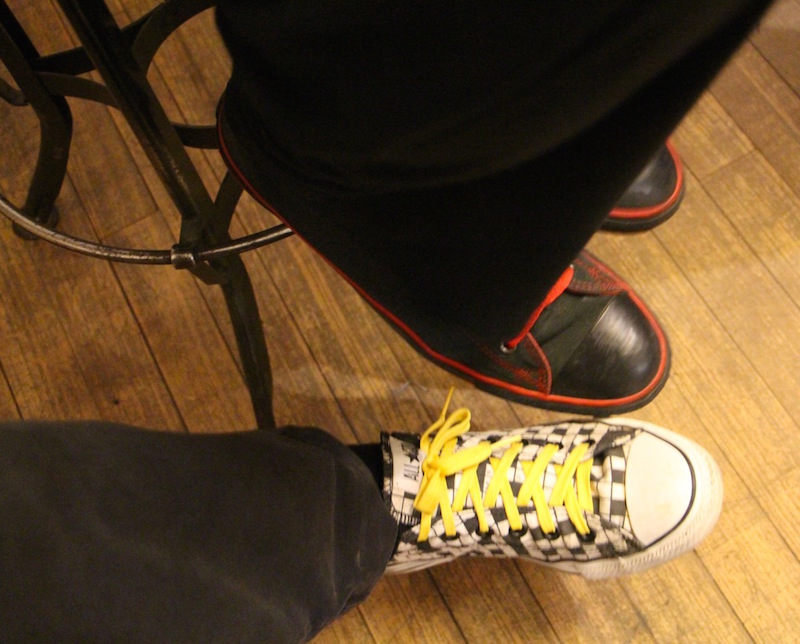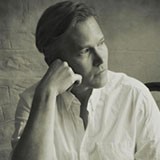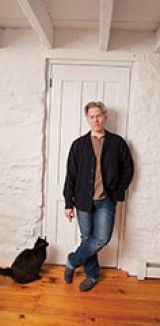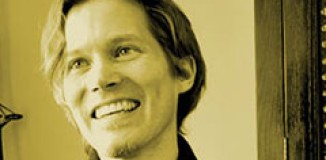WORD CAFE EVENT ARCHIVE CORNELIUS EADY – 5/28/15
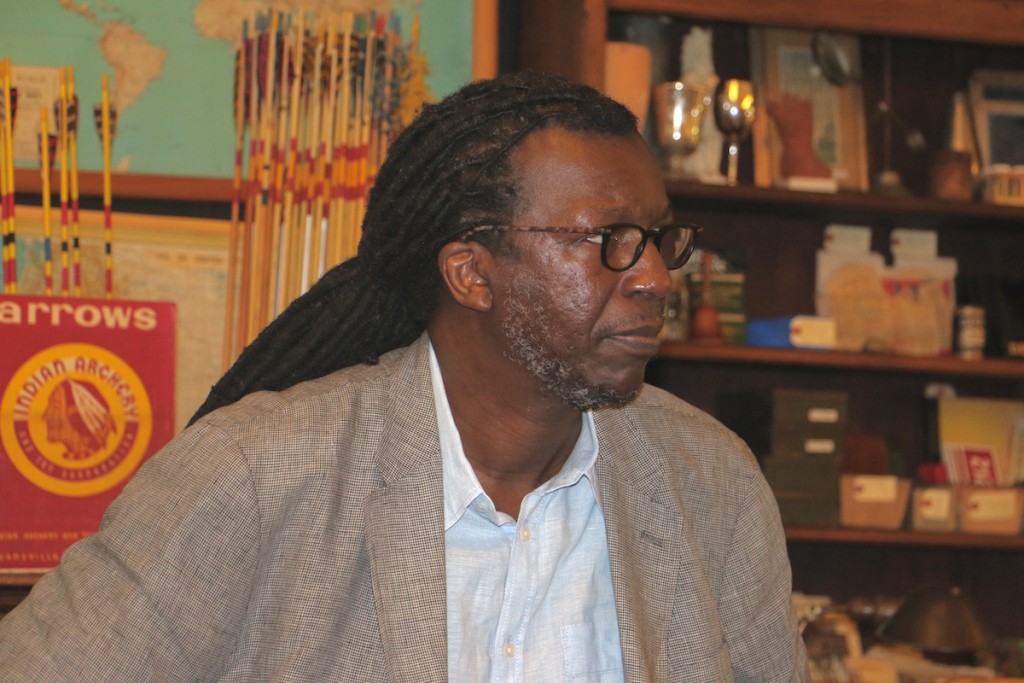 A hero’s welcome to poet-musician Cornelius Eady, who sat in a northbound Manhattan traffic jam for more than an hour to come up and join us! (And while we’re spreading gratitude, thanks to Word Café’s genius webinatrix Nan Tepper for valet-parking Cornelius’s car in uptown Kingston so he could come right in.)
A hero’s welcome to poet-musician Cornelius Eady, who sat in a northbound Manhattan traffic jam for more than an hour to come up and join us! (And while we’re spreading gratitude, thanks to Word Café’s genius webinatrix Nan Tepper for valet-parking Cornelius’s car in uptown Kingston so he could come right in.)
Cornelius made up for lost time with his presentation on “The Music of Words.” Tuning and retuning his Baby Martin travel guitar, he first recited the poem by Harlem Renaissance poet Sterling A. Brown.
Then Cornelius sang us the song setting he’d written for Brown’s words.
Next he sang us his own song (words and music) “Twilight is the Hour.”
So what is the difference between writing song lyrics and writing poetry, which has its own musicality and rhythm? “Same throat, different muscles,” said Cornelius, echoing Nancy Willard’s words about writing across different genres: “Many buckets, same well.” It’s a difference of intent, he continued. Lyrics are meant for melody, and though poems are meant to be recited, we usually encounter a poem first on the page, before we hear the poet.
Continuing the musical theme (also found in the opening poems of his new chapbook Singing While Black), Cornelius read a poem from his book Hardheaded Weather: New and Selected Poems. Its title, “I’m a Fool to Love You,” comes from a Frank Sinatra song.
The poem grew out of a conversation he’d had with his mother shortly before her death. He asked her favorite song (“It’s Only a Paper Moon”) and how she’d met his father. After the book came out, Cornelius reminded her of this conversation and she told him a totally different story about how they’d met. “And that’s fine,” he explained. “Sometimes when you write, you get the idea it has to be true. But it’s her story–the way I heard her story; it’s not necessarily the truth. The truth is out there somewhere. The poem is here.”
When Cornelius teaches beginning poets, one of the first things he tries to do is break down resistance to approaching poetry “like it’s an opera in Italian, in a specific language for specific people. It’s just a human voice, human experience. We all have different ways of capturing that. If you don’t capture it, we lose.”
He also said, “You have to get used to failure if you’re going to be an artist. Sometimes the lousy poem has to die to give birth to the good one.”
As for criticism, seek out family and friends you trust to be tough but fair. But ultimately, “It doesn’t matter. This is your art, this is what you do. It’s not a debate. You own it. It’s yours.”
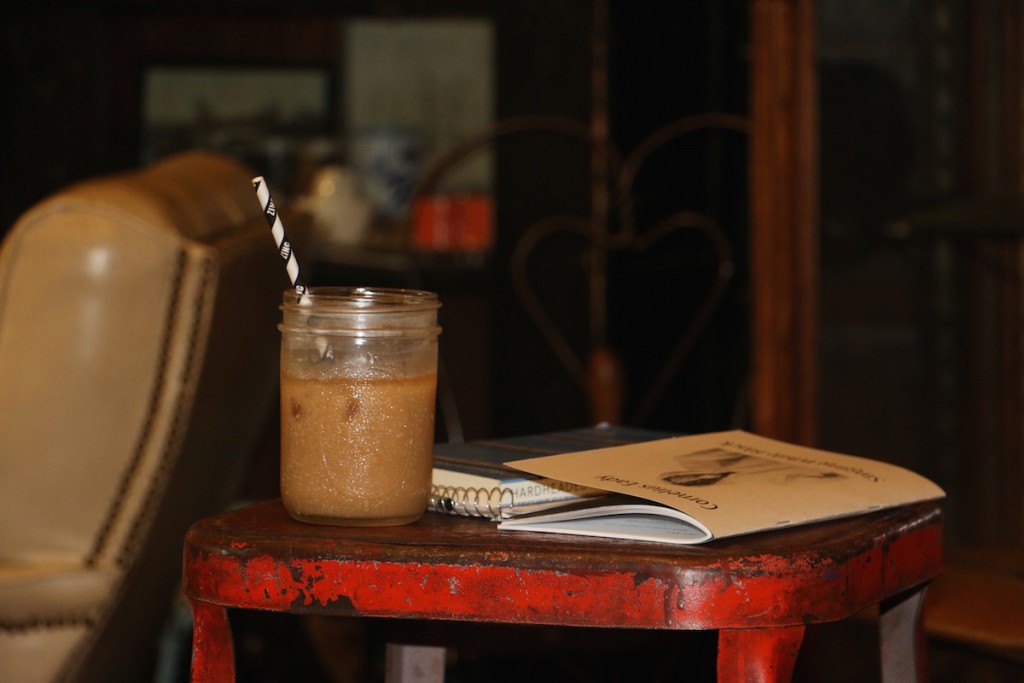
THE EXERCISES:
Nina asked people to write down a line from a song or poem you love, then trade lines with someone sitting nearby. Read the line you’ve been given, and use the whole line, or some word or phrase within it, as the springboard for a new poem. Try to follow its music back to the line you gave to somebody else.
Cornelius’s exercise had two parts. First he asked us to review the day we’d just had, from the time we got up to the time we sat down at outdated. Locate a quiet moment and write about it as fully as you can. After a few minutes, he asked for a few volunteers to read what they’d written.
The second part: Write a poem about your first kiss. Again, he asked a few people to read their work. What was different?
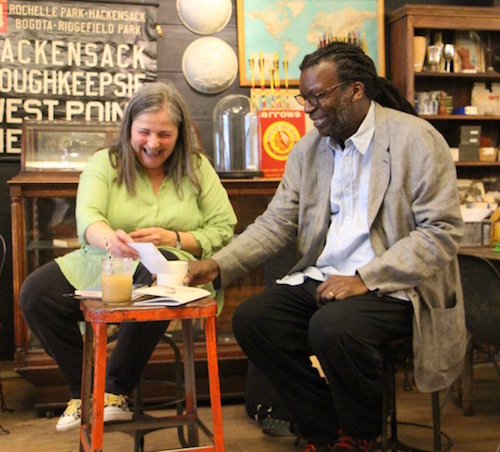 Poetry, said Cornelius, is about language, image, sound, and memory. While both of these prompts involved sharing an intimate moment, the first memory was recent, quiet and contemplative. The second was active, with an inherent intensity. It requires specifics: you’re trying to explain who did what to whom. It’s detailed and particular; you break it down. Also, Cornelius explained, you need to get to a specific “pow!” moment (he clapped his hands). How do you frame that? What frames YOU? How did you become the person we see? It’s about taking a risk, being bold enough to get it down and share it.
Poetry, said Cornelius, is about language, image, sound, and memory. While both of these prompts involved sharing an intimate moment, the first memory was recent, quiet and contemplative. The second was active, with an inherent intensity. It requires specifics: you’re trying to explain who did what to whom. It’s detailed and particular; you break it down. Also, Cornelius explained, you need to get to a specific “pow!” moment (he clapped his hands). How do you frame that? What frames YOU? How did you become the person we see? It’s about taking a risk, being bold enough to get it down and share it.
Language, image, sound, and memory. Go!
